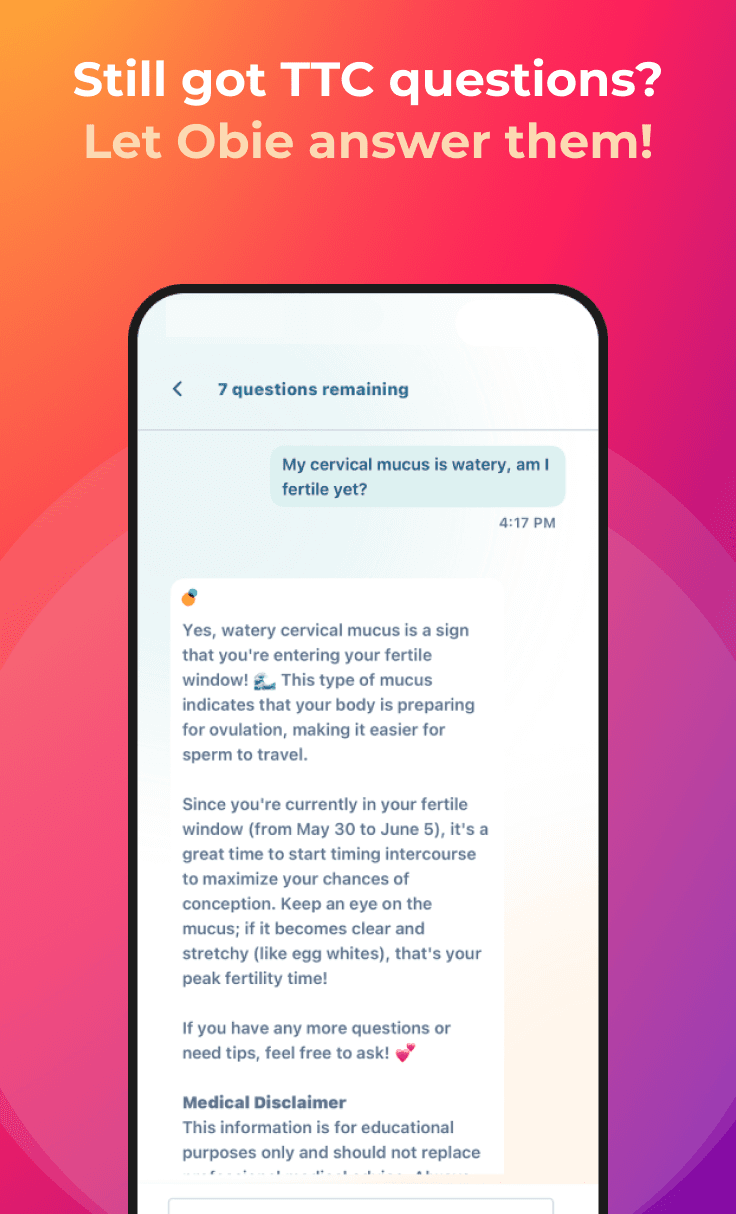How to Increase Fertility: Dr. Amos' 12-Step Program
Fertility
Obie Editorial Team

The Dr. Amos 12 step fertility improvement program will improve your chances of getting pregnant and help you have a healthy pregnancy and baby. Whether you are just started trying to conceive (TTC), or you have been TTC for some time, you only have a 20-25% chance of getting pregnant each month. And that is under the best of circumstances.
Take the Dr. Amos Fertility 101 University to learn 12 lessons all about getting pregnant and how to improve your chances of getting pregnant.
About 1 in 7 couples take longer than a year to get pregnant. How can you improve your odds? In my professional experience, many couples do not know the basics of fertility and therefore deprive themselves of having the chance to have a healthy pregnancy.
Find out in 12 steps how to improve your fertility and get pregnant faster and healthier:
Get educated
There are many hurdles to getting pregnant and getting it right can be stressful. Most couples who have difficulties getting pregnant have either sperm issues, ovulation issues, or fallopian tube issues. Do you have any of these? Is it your age, your weight, your lifestyle? Should you see an infertility specialist now or can you wait and improve your chances of getting pregnant naturally?
Infertility specialists are very expensive and in-vitro fertilization (IVF) can cost upwards of $15-20,000 each month! IVF often has a less than 1 in 3 chance of getting you pregnant. In many cases, simple lifestyle changes and paying attention to your fertility can help improve your chances of getting pregnant. Read our top fertility and pregnancy FAQs.
Have a periconception evaluation
Start off with our online Periconception Interview. Print out the recommendations and see your doctor. Get examined, discuss any open questions and consider getting specific tests before pregnancy such as:
- Pap smear
- STD tests
- Cycle Day 3 Hormone tests
- His Sperm Count
- Consider testing your fallopian tubes (Hysterosalpingogram).
Be at your optimal weight
Both extremes of weight can affect your fertility, and maintaining an optimal weight will improve your fertility. The best way to find out whether you weigh too much or too little is to calculate your body mass index (BMI). Losing some pounds is cheaper than expensive fertility treatments, so why not try it?
The big O (Ovulation)
Your fertile days are the 4-5 days leading up to ovulation and the day of ovulation. Calculate the exact fertile days. Are you ovulating normally? Learn more about your Ovulation Symptoms and Signs. Finding out when you ovulate is the key:
- Chart your basal body temperature (BBT)
- Chart your fertility signs and symptoms like cervical mucus
- Use Ovulation predictor kits (OPKs)
Become a better and frequent lover
You should have sex regularly throughout the menstrual cycle, and at the least once a day every day during your fertile 5-6 days preferably in the missionary position. The egg can only be fertilized during the 12-24 hours after ovulation but sperm has to be there already and it can live in the lower portion of a woman's reproductive tract up to five days. Having sex after ovulation is unlikely to get you pregnant.
Increase his fertility
It takes 2 to get pregnant. His sperm has to be healthy, so make sure you know how to improve his sperm count.
Male fertility problems affect 50% of couples who can't get pregnant, so first make sure he has enough sperm by doing a Sperm Count. Make sure he has a healthy diet, exercises, is at his optimal weight, doesn't smoke or drink, and takes a daily vitamin and herbal fertility supplement like FertilAid to boost his sperm count.
Take a daily fertility and vitamin supplement
The Surgeon General recommends for all women of childbearing age to take a daily preconception vitamin including folic acid to decrease fetal malformations. Taking supplements which include folic acid as well as prenatal vitamin supplements which include vitex to improve fertility, such as FertilAid are all keys to preventing birth defects in the developing embryo. Taking an all-in-one supplement like FertilAid provides you not only with your daily vitamins and folic acid but it also includes a proprietary blend of all-natural herbs designed to improve your fertility.
Exercise regularly
Exercising is healthy and gets your body ready for the strains of pregnancy and labor and delivery.
Follow a healthy diet
Many doctors now believe diet can improve your fertility, especially if you have certain problems with ovulation. Some believe that the right diet can make a significant difference in becoming pregnant. The majority of women experiencing ovulatory dysfunction were also suffering from undiagnosed or subclinical PCOS (polycystic ovary syndrome), a condition related to insulin resistance that also affects ovulation. So what should you eat?
- Eat more monounsaturated fats (like olive oil) and less trans fats (like the kind found in many baked goods or fast foods).
- Increase intake of vegetable protein (like soy), while reducing animal protein (like red meat).
- Eat more high fiber, low-glycemic foods -- like whole grains, vegetables, and some fruits, while reducing the intake of refined carbohydrates and sugars.
- Consume moderate amounts of high-fat dairy products -- like ice cream, whole milk, and cheese.
- Learn all about the "Food NoNos".
Reduce stress
It’s rarely healthy to live with a lot of stress and some studies have reported that reducing stress may improve fertility. So what can you do to reduce stress?
- Cook
- Get regular massages
- Exercise
- Take long weekends off
- Listen to music
- Do yoga
- Read and write journals
- Garden
- Pamper yourself
- Spend more time with your family and friends
- Hold hands with your partner
- Acupuncture
Stay away from drugs, cigarettes, and alcohol
Smoking, drinking, and recreational drugs not only have a negative impact on your fertility, but also increase miscarriages and complications during pregnancy like premature delivery. Don't drink more than 2 cups of coffee a day. Review with your doctor all medications you take including over-the-counter and prescription medications. Most medications are safe, but there are some that can affect your pregnancy. Do not stop any medications that you need unless you discuss it with your doctor first.
Get your finances in shape
Check your health insurance coverage, review your options for leave at work and make a pregnancy and baby budget.
Read More











